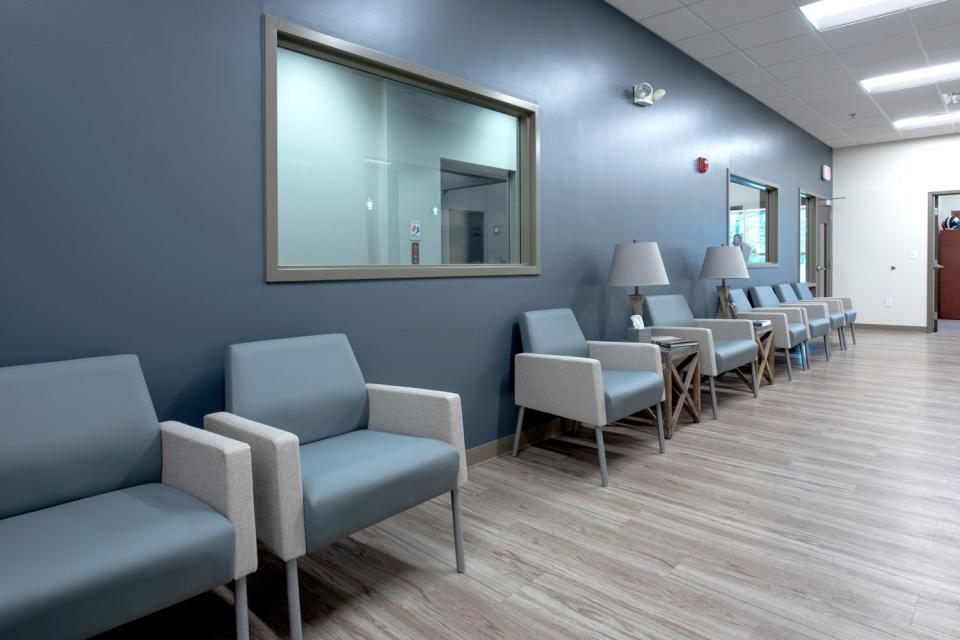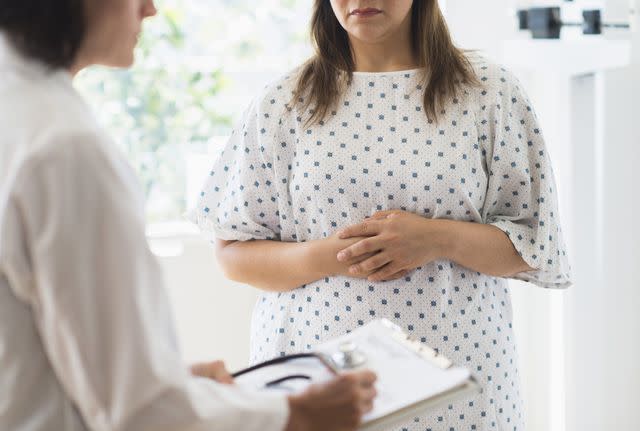Woman Calls for Separate Waiting Rooms at OBGYN Offices After She Experiences Pregnancy Loss (Exclusive)
One TikToker explains how her experiences with pregnancy loss have given her insight into the need for more emotionally-informed care

Getty
Stock image of a doctor's office waiting roomA woman who is in the middle of a difficult time in her fertility journey filmed a TikTok, calling for a more empathetic setup for OBGYN offices
TikToker @indiabatson's idea for separate waiting rooms went viral after others who have experienced struggles conceiving and pregnancy loss shared their experiences
India tells PEOPLE how her experience opened eyes to the gaps in emotionally-informed services from healthcare providers
A TikToker opening up about her experiences trying to conceive is getting honest about the accommodations those struggling should have access to.
TikToker @indiabatson went viral on the platform earlier this month when she made a video making a "recommendation to OBGYN offices," going on to propose "a different waiting area if you're there for a miscarriage, an ectopic pregnancy, a ruptured ectopic pregnancy."
"If you're there for a loss, I'd like there to be a separate waiting room than the regular waiting room because sitting in that waiting room next to tons of pregnant women while you wait to go back to get bloodwork to see if your HCG is back to zero sucks, like it absolutely sucks."
Speaking to PEOPLE, she explains. "I've experienced back-to-back pregnancy losses, and in September of last year, I had a ruptured ectopic pregnancy and had to be rushed into emergency surgery to remove my fallopian tube on the right side. Then, a couple of months later, we began to try again, and we got pregnant in January of this year, and I had a miscarriage last month."
Related:
India found that the women in her life didn't open up to her about pregnancy loss until she disclosed her own, despite it happening in one in four pregnancies.
"I think it's something that society has placed a stigma around. Women often experience guilt and shame. It's something we don't shine a light on. We don't speak about it, hiding in our homes and dealing with it alone," she explains.
When returning to her OBGYN to check her bloodwork, India experienced "a rush of emotion that I was not expecting from being back in the same room where I found out that my child had passed away inside of me," she says.
"One day, I was sitting in a waiting room with my husband, looking at the ultrasound photo of our baby. Two weeks later, when I filmed that video in the waiting room, I was in the exact same room. This time, I'm alone, and my husband's no longer there. There is no longer an ultrasound photo in my hand. It's just the complete opposite experience," she continues, noting that being around pregnant peers made it sting that much more.
"I'm so happy for those women who are pregnant, I celebrate them ... But sitting next to visibly pregnant women in that waiting room when you were there for a follow-up after pregnancy loss is mentally challenging, to say the least," she says.

India is grateful to have started a larger conversation regarding stigma and pregnancy loss and to provide resources that are scarce for women going through the experience.
"When I was experiencing my pregnancy losses, I immediately went to social media to look for women who had also experienced rupturing ectopic pregnancies and miscarriages. I frankly didn't find a lot of candid conversations or content on social media of women going through what I was experiencing and seeking out," she says.
"I wanted to create that content I was looking for myself in hopes that someone who's going to experience a miscarriage in a month will then find my videos and hopefully feel less alone."
India was grateful for the "overwhelmingly positive response" to the video from other women who "are longing to be seen and heard and valued and not viewed as hysterical for looking for empathetic, trauma-informed care from our medical providers."
Through the many comments on the video, she learned that care like this is more normally provided in the UK than in the United States.
"It proves there are resolutions; there are ways to go about it. I'm a realistic individual; I do understand that not every single OBGYN office in America has the capacity to have separate waiting rooms. There are alternatives, however, such as staggered schedules, that can help provide these women with dignity. They can have empathetic and compassionate care after experiencing a pregnancy loss. It is possible."

India admits, "Trying to conceive has definitely not been the journey that I was anticipating, but such is life."
She continues about her own plans, "We're currently taking a break for my body to heal and hopefully will begin to try again in May."
India is grateful for the "beautiful and healing experience" it has been to have women share their stories with her.
"To hear someone say, 'Oh my gosh, I had the exact same experience' — and on so many videos, not just one in particular — is moving. I've always said that women are stronger when we're together, when we rally behind each other. Clearly, that's what's happening, where we're all coming together and raising our voices."
For more People news, make sure to sign up for our newsletter!
Read the original article on People.


